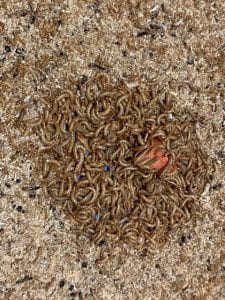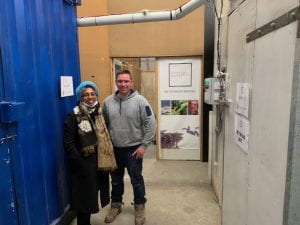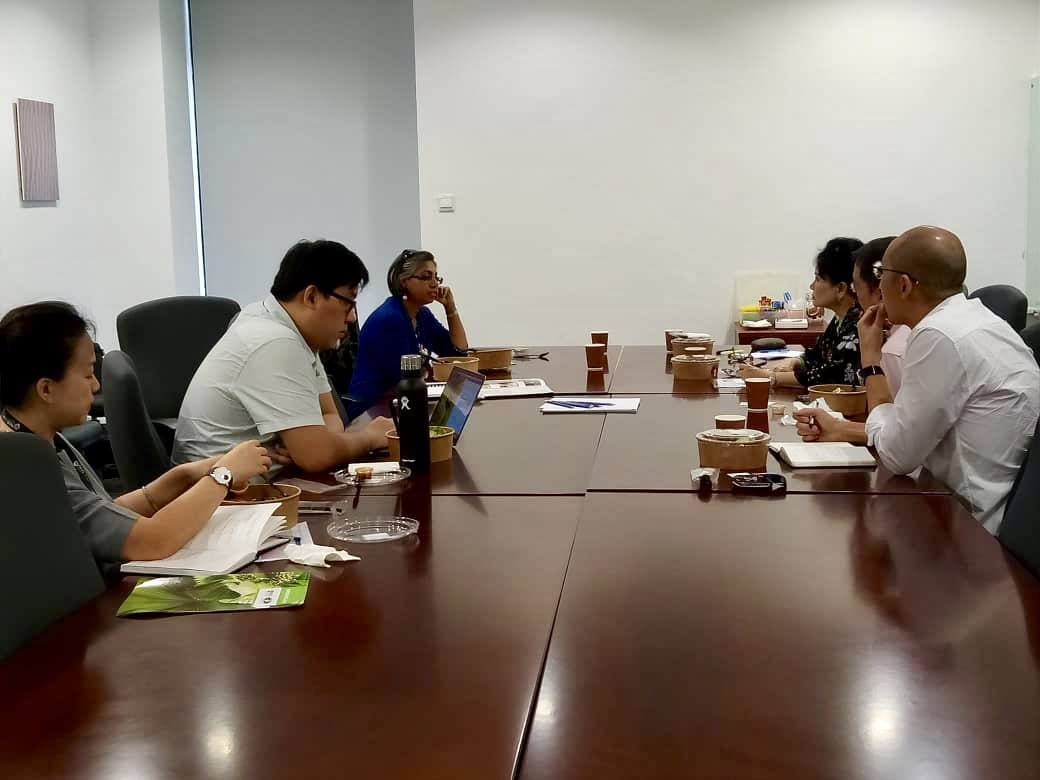 In order to start a conversation on the important legal questions relating to insects as a food source, Dr Sharl Marimuthu travelled to Sydney to meet with staff from the Department of Primary Industries. Together they began the journey of understanding and exploring some of the legal issues and risks involved in using insects as an animal food source and also for human consumption.
In order to start a conversation on the important legal questions relating to insects as a food source, Dr Sharl Marimuthu travelled to Sydney to meet with staff from the Department of Primary Industries. Together they began the journey of understanding and exploring some of the legal issues and risks involved in using insects as an animal food source and also for human consumption.
It was noted during the meeting that farmers are already using insects as an alternative food source for stock. However, before insects can become a mainstream food source, there needs to be a regulatory framework designed to ensure there is compliance and enforcement on both biosecurity and food safety. 
‘Large scale farming of insects as a food source for both human consumption and stock feed requires an assessment of both the existing and required regulatory framework’ Dr Marimuthu said.
Dr Marimuthu stated, ‘we need to bring ourselves up to speed quickly here because there are clear gaps between the relevance of our current regulations, and what’s required to support and govern this fledgling industry in Australia overall.’ Dr Marimuthu highlighted that ‘there are no specific guidelines in place for insects as food and feed. This includes the storage of insects, labelling and marketing of insect based food and feed products, disease control, sanitation, food quality and pest eradication.’
Following the meeting with the Department of Primary Industries, Dr Marimuthu visited an operational insect farm called ‘GoTerra’ in Canberra. The aim of this visit was to understand the processes involved in breeding and rearing insects, the costs and technologies used, as well as the legal and regulatory impediments as seen by the industry itself.
 Jason from ‘GoTerra’ accompanied Dr Marimuthu during a tour of the farm. Jason explained how the black soldier flies are reared, how recycled waste is used as food for the insects and how temperature and hygiene are tightly controlled. Dr Marimuthu was impressed at how insects are raised in this controlled environment which is both efficient, hygienic, low-cost and environmentally friendly.
Jason from ‘GoTerra’ accompanied Dr Marimuthu during a tour of the farm. Jason explained how the black soldier flies are reared, how recycled waste is used as food for the insects and how temperature and hygiene are tightly controlled. Dr Marimuthu was impressed at how insects are raised in this controlled environment which is both efficient, hygienic, low-cost and environmentally friendly.
Dr Marimuthu is passionate about the potential of this future food source. However, to assist the industry achieve its full potential there must first be established regulations to ensure that bio security and food safety issues are addressed.
Thank you Sharl for sharing these valuable insights!



